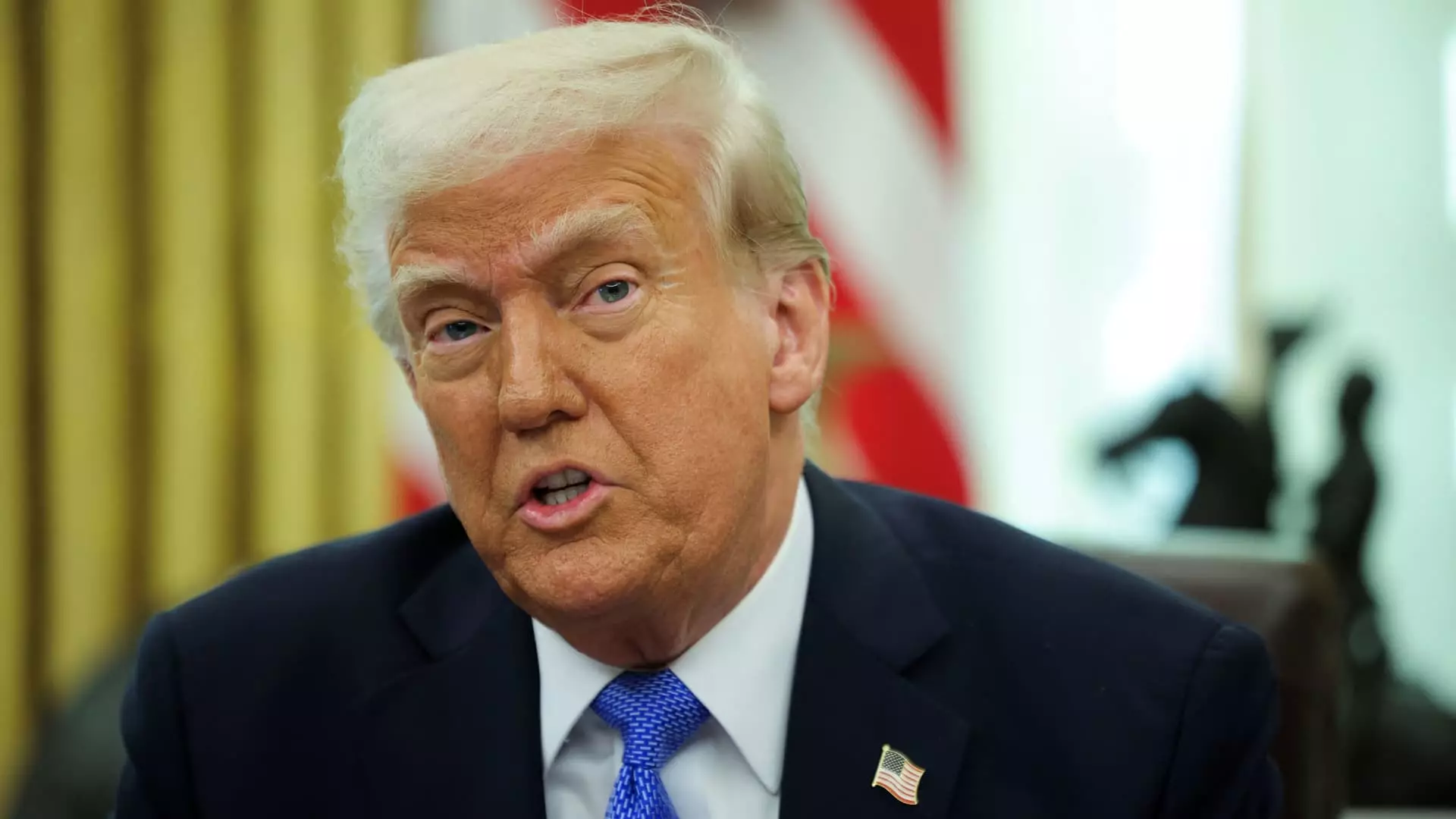In a move that should send shivers down the spines of student loan borrowers, President Donald Trump has proposed transferring the management of federal student loans from the Department of Education to the Small Business Administration (SBA). While this shift may seem innocuous on the surface, it raises alarm bells about the sheer lack of expertise and understanding that the SBA has regarding educational finance. With over $1.6 trillion in federal education debt and more than 40 million Americans grappling with loans, the implications of this transfer are profound and potentially detrimental.
The president’s announcement, which he made in the Oval Office, seemingly dismisses concerns about the complexity of managing such a vast portfolio. “They’re waiting for it,” Trump assured, yet one can’t help but wonder: is this a mere bureaucratic shuffle or a serious misstep that could harm millions? The SBA’s primary focus is supporting small businesses, not navigating the intricate world of student loan policies, making this decision a questionable one at best.
Consumer Advocates Sound the Alarm
When consumer advocates hear about such significant changes, their first instinct is to worry. The transfer of student loan accounts could lead to an avalanche of errors that risk compromising borrowers’ privacy and protections. The Public Service Loan Forgiveness program, intended to protect those who serve in public sectors, may become an unintended casualty in this oversight-laden transition. If the handling of these loans goes awry, who will be held accountable for the unjust consequences to borrowers?
This isn’t just a matter of logistics; it strikes at the heart of student borrowers’ rights. As the announcement reminds us, borrowers were explicitly promised terms and protections when they signed their master promissory notes. Any shift in agency should not erode those guarantees, yet the uncertainty of the SBA’s ability to uphold these agreements looms large.
A Misguided Strategy: The Wrong Agency for the Job
There’s a prevailing notion among experts that the Treasury Department would have been a much more suitable fit for overseeing federal student loans. With the existing framework for collecting debts via the Treasury Offset Program, the Treasury boasts at least some relevant experience in financial management—something sorely lacking at the SBA and the Commerce Department. The decision to bypass a more qualified agency suggests a profound misunderstanding of who is best equipped to handle such a critical responsibility.
Moreover, this elevation of student loans into a business framework, rather than an educational framework, represents a fundamental shift in how we value education. By placing education in the hands of an organization focused on business, we’re tacitly prioritizing profit over the long-term benefits of accessible education. This could lead not only to increased financial burdens for students but also undermine the foundational belief that education is a public good.
What Lies Ahead for Borrowers?
As Trump’s administration races forward with this disruptive initiative, student loan borrowers should remain vigilant. The transmission of their loans to the SBA may occur swiftly, but the consequences could unfold over years. While the administration assures that existing terms won’t change, the inherent instability of such a switch breeds skepticism. Borrowers who have already weathered financial storms in the past may find themselves facing new challenges brought on by bureaucratic confusion.
Ultimately, the handling of federal student loans under the SBA could serve as a case study in how political decisions can directly impact real lives, particularly those of vulnerable borrowers. In the quest for efficiency, we must not lose sight of expertise; the stakes are too high. As citizens, we must advocate for a more coherent, educated approach to managing student debt—one that truly reflects the value of higher education instead of turning it into yet another business venture.

